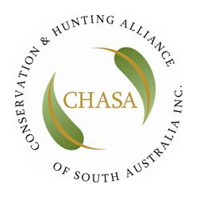
Rules and Regulations
Learn more about hunting rules, permits, etc.
Hunting Rules
Overview of hunting rules and regulations here. Maybe you want to turn a hobby into something more. Or maybe you have a creative project to share with the world. Whatever it is, the way you tell your story online can make all the difference.
Don’t worry about sounding professional. Sounds like you. There are over 1.5 billion websites out there, but your story is what’s going to separate this one from the rest.
Prohibited hunting areas
Hunting is not permitted on:
All reserves constituted under the National Parks and Wildlife Act 1972 (except for specified game reserves during a declared open season);
All wilderness protection areas and all wilderness protection zones constituted under the Wilderness Protection Act 1992; and
All sanctuary zones within any marine park established under the Marine Parks Act 2007.
No hunting or fishing is permitted within 150 metres either side of any barrage structure.
Duck hunting is only permitted on Game Reserves explicitly declared open in the open season notice.
Safety for Shooters
Please respect the rights of other hunters. It is generally accepted that the first hunter to a position has precedence and no hunter should approach closer than 50m without the other hunter’s permission. Avoid accidents – please don’t shoot low.
Code of practice for humane destruction
All hunters must comply with the requirements of the codes of practice for humane destruction of wildlife.
CHASA Strongly recommends that all animals which are shot but not killed immediately should be dispatched with a second shot if safe to do so.
Use of dogs in hunting
Setting dogs on animals is not permitted in South Australia. It is an offence for a person to encourage a dog to attack or maim another animal. Dogs that are likely to attack must not be used for hunting.
Duck and quail hunting: Dogs can only be used to locate and/or retrieve.
Feral animal hunting (on private land only): Dogs can only be used to locate, hold at bay and retrieve.
Use of artificial lights Permits
Spotlights and other artificial lights may be used for hunting feral animals.
Transporting firearms
You must carry your firearms licence (or a copy) with you whenever you are
carrying or transporting firearms. This can be an electronic copy.
The rules around transporting firearms are governed by the Firearms Act 2015 and the Firearms Regulations 2017.
When transporting firearms, you must:
store the firearms and ammunition by the best means possible such as in the boot of the car, the glovebox, a cupboard, or a container locked to the vehicle
keep firearms and ammunition separate
keep the firearms and ammunition covered, in an unmarked case or bag
carry only unloaded firearms while travelling to or from a hunting site
make sure you do not leave the vehicle unattended unless there is a reasonable need to do so.
Resources
Understand the hunting laws. Check out the NPW Act and the NP&W
(Hunting) Regulations 2011. For copies of acts and regulations visit www.legislation.sa.gov.au.
Read the codes of practice and standard operating procedures on the Pest
Smart website www.pestsmart.org.au.

HUNTING PERMITS
Feral animals (including deer)
With a basic Hunting Permit (and written permission of the land owner) you can hunt feral animals such as rabbits, foxes, goats and pigs. Read more information
Unprotected native animals
Add your pricing strategy. Be sure to include important details like value, length of service, and why it’s unique.
Duck Hunting
Add your pricing strategy. Be sure to include important details like value, length of service, and why it’s unique.
Quail Hunting
Add your pricing strategy. Be sure to include important details like value, length of service, and why it’s unique.







